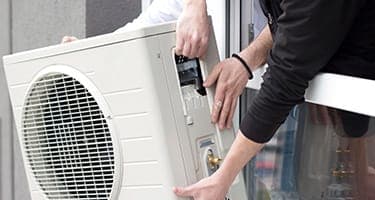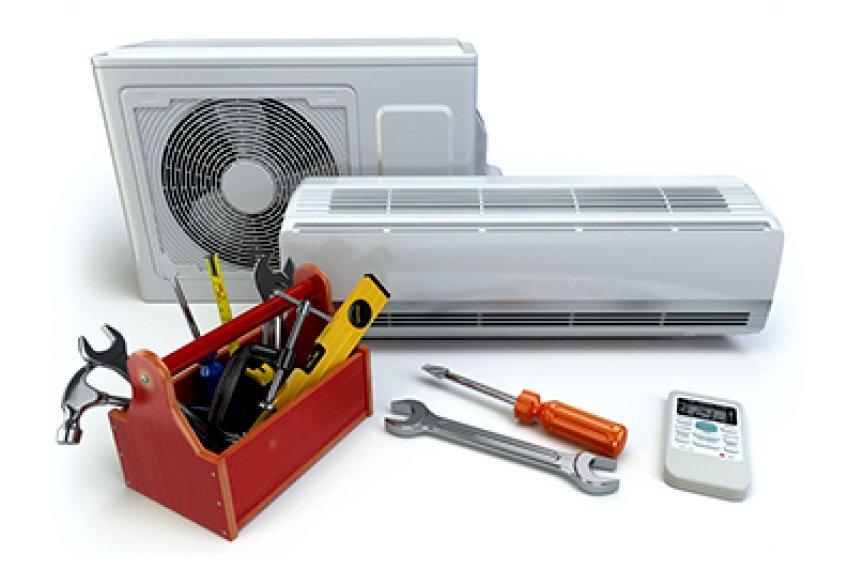7 Easy Facts About Air Conditioning Repair Near Me Explained
7 Easy Facts About Air Conditioning Repair Near Me Explained
Blog Article
The Facts About Ac Air Conditioner Repair Uncovered
Air conditioning Repair Near Me: Expert Cooling System Restoration Ensures Your Home Stays Comfortable All Year Round
Types of Air Conditioning Systems
When taking on a/c repair work, comprehending the kind of a/c system you're dealing with can save time, cash, and aggravation. Ever wondered why some units cool a room faster than others? Or why specific systems seem to break down more regularly? Let's peel back the layers.
Central Air
The Best Guide To Repair Air Conditioner Near Me
Imagine a cool breeze streaming through an entire house, whispering convenience into every corner. Central air conditioning systems do exactly that. They use a network of ducts to disperse cooled air, depending on a compressor and condenser outside, paired with an evaporator coil inside. But when this complex beast falters, identifying more info the issue can be like discovering a needle in a haystack.
Split Systems

Split systems are a popular choice for numerous homes-- part indoor unit, part outside compressor. They offer versatility and efficiency, however their dual nature means repair can include either part. Have you ever heard a weird noise outside your home just to discover the indoor system isn't cooling? That's a timeless sign of a split system glitch.
The Buzz on Ac Repair
Window Units
These compact warriors fight summer heat by fitting comfortably into a window frame. They combine all elements into a single box. Their simplicity frequently indicates fewer repair headaches, however overlooking filters or permitting particles accumulation can cause reduced performance or breakdowns.
Ductless Mini-Splits
What Does Air Conditioning Repair Mean?
Ductless systems bypass ductwork entirely, making them ideal for homes without existing ventilation. They're peaceful, efficient, and remarkably resilient. Yet, when repair work are required, specialists should be adept at handling refrigerant lines and electrical connections-- no small feat.
Quick Recommendation Table
| Type | Key Includes | Typical Repair Work Issues |
|---|---|---|
| Central Air | Ductwork, whole-house cooling | Duct leakages, compressor failure |
| Split System | Indoor & & outside units | Refrigerant leakages, fan motor concerns |
| Window System | All-in-one, simple setup | Filthy filters, electrical faults |
| Ductless Mini-Split | No ducts, zoned cooling | Line leakages, sensing unit breakdowns |
All About Ac Repair Near Me
Unwinding one of the most Regular Air Conditioning Dilemmas
Have you ever wondered why your air conditioner all of a sudden stops cooling throughout a sweltering afternoon? One typical offender is an unclean or stopped up air filter. This sneaky villain limits air flow, forcing your system to work overtime, which not only decreases performance however can likewise result in premature breakdowns. Imagine attempting to breathe through a scarf soaked in dust-- it's exhausting!
Another regular misstep is refrigerant leaks. These invisible leaks do not just reduce cooling power but can also harm the compressor, the heart of your AC unit. How typically do you inspect for unusual hissing noises or ice formation on the coils? Catching these signs early can save you from pricey repair work down the line.
Beyond the Basics: Lesser-Known Issues
How Ac Air Conditioner Repair can Save You Time, Stress, and Money.
Sometimes, the thermostat itself is the troublemaker. Miscalibrated or faulty thermostats send blended signals, triggering the air conditioner to cycle erratically. Ever knowledgeable your air conditioning switching on and off in quick succession? That's called short cycling, a sneaky efficiency drainer that can break elements quicker than you 'd anticipate.
Electrical problems, such as used electrical wiring or a malfunctioning capacitor, might lurk below the surface. AC Repair Near Me. These frequently manifest as a/c systems stopping working to start or unexpectedly closing down. An expert eye understands to evaluate these components with precision tools, something a casual look won't reveal
Expert Tips for Diagnosing Common Air Conditioner Issues
Some Known Factual Statements About Fix Air Conditioner
- Inspect and change air filters routinely-- every 1 to 3 months depending on usage and environment.
- Listen for uncommon sounds like rattling or buzzing that could indicate loose parts or electrical faults.
- Examine the outdoor system for particles or obstructions that impede airflow and cause getting too hot.
- Search for frost buildup on evaporator coils, a hint towards refrigerant problems or air flow restrictions.
- Test the thermostat settings and recalibrate if the temperature level readings feel off.
Quick Reference Table: Symptoms & & Probable Causes

| Sign | Probable Cause | Professional Suggestion |
|---|---|---|
| Warm air blowing | Low refrigerant or filthy coils | Clean coils and look for leakages immediately |
| Short biking | Thermostat concerns or oversized system | Change thermostat settings and seek advice from sizing guidelines |
| Unit will not start | Electrical faults or capacitor failure | Test electrical wiring and change capacitors as needed |
| Water leakage | Clogged drain line or frozen evaporator | Clear drain lines and inspect for coil icing |
DO IT YOURSELF AC Upkeep Tips
The smart Trick of Ac Fixing That Nobody is Discussing
Ever discovered your air conditioning unit sputtering like an old engine on a hot summer season day? Neglecting subtle signs frequently implies more than simply a sweaty afternoon-- it's a start to unforeseen AC repair expenses. What if you could catch those whispers before they turn into wails? Routine do it yourself upkeep can be your very first line of defense.
Simple Actions to Keep Your Air Conditioner Running Smoothly
Ac Repair Can Be Fun For Everyone
- Clean or Replace Filters: A clogged up filter is like trying to breathe through a scarf. Every 1-3 months, inspect and switch out your filters. It improves airflow and performance, avoiding compressor strain.
- Inspect the Condenser Coils: Dust and particles function as undetectable blankets smothering your system's cooling power. Gently brush or vacuum the coils, but prevent harsh chemicals that might erode the metal.
- Inspect the Drain Line: When was the last time you looked at your drain pan? A stopped up drain can trigger water leakages and foster mold development. Flushing it with a vinegar solution month-to-month keeps the circulation clear.
- Seal and Insulate: Are your ductworks whispering leaks? Sealing gaps with mastic or foil tape enhances efficiency and cuts down on uneven cooling.
Pro Tips Beyond the Essentials
- Step your system's voltage to catch subtle electrical wear before it triggers big problems.
- Listen for uncommon hums or rattles-- these acoustic breadcrumbs frequently signify loose parts or failing motors.
- Keep outside units shaded however guarantee at least two feet of clearance around them for ideal air flow.
Ask yourself: Are you hearing your air conditioner's quiet SOS or just awaiting it to shriek? Requiring time for DO IT YOURSELF air conditioning upkeep changes reactive repair work into proactive care, conserving sweat, stress, and yes, money.
A Biased View of Fix Air Conditioner
Why Competence in Air Conditioning Repair Matters
Envision this: your air conditioner system sputters and groans throughout a scorching afternoon, leaving you sweltering indoors. Would you rely on a newbie fumbling with delicate components, or would you seek the reassurance of a expert air conditioner specialist!.?.!? The intricacies of modern cooling systems require accuracy and experience. A small miscalculation can intensify a minor breakdown into a pricey disaster.
Top Guidelines Of Fix Air Conditioner
Unseen Complexities Behind the Cool Breeze
Lots of undervalue the layers concealed underneath the smooth outside of an air conditioner system - AC Air Conditioner Repair. From refrigerant leaks that calmly drain performance to faulty thermostats that misread temperatures, these concerns require more than a basic toolkit. Professionals possess an eager eye for detecting problems that balance homeowners ignore
Essential Tips for Selecting the Right Technician
The Ultimate Guide To Ac Repair Near Me
- Accreditation and Training: Confirm qualifications; a specialist trained in the most recent a/c technologies is indispensable.
- Experience with Particular Systems: Not all air conditioner units are created equivalent; discover someone knowledgeable about your model's quirks.
- Diagnostic Approach: Competent professionals use advanced tools-- like electronic leakage detectors and thermal imaging-- to pinpoint surprise faults.
What to Expect from a Pro's Diagnostic Process
| Step | Function | Expert Insight |
|---|---|---|
| Visual Evaluation | Identify apparent wear or damage | Search for corrosion or uncommon noises-- an indicator typically disregarded |
| Pressure Checking | Spot refrigerant leaks | Subtle pressure drops can mean micro leaks unnoticeable to the naked eye |
| Electrical Testing | Guarantee circuit integrity | Loose connections can mimic serious mechanical failures |
How Repair Air Conditioner Near Me can Save You Time, Stress, and Money.
Why DIY Often Falls Short
Appealing as it is to play with your air conditioning unit, DIY fixes regularly miss out on the origin. Topping off refrigerant might temporarily cool your area however disregards leaks that intensify over time. Expert professionals don't just spot signs; they hound the underlying mechanical and electrical faults that sap efficiency.
An Unbiased View of Ac Repair Near Me
Concerns to Ask Before Working with
- What diagnostic tools do you use to determine issues?
- Can you discuss the repair work procedure and expected outcomes?
- Are you familiar with the refrigerants suitable with my system?
- Do you follow security procedures for dealing with electrical components?